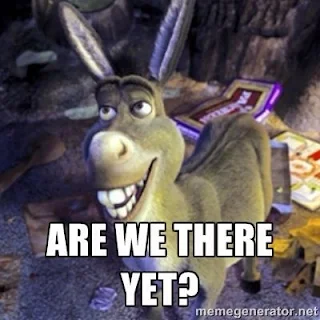Looks like the generation that enjoyed the “are we there yet?” clip from Shrek 2! are all grown up. Now that they are cooped up in lockdown, they complain that they are bored. They keep whining when the movement control order will end.
This is the generation that could not be left to themselves to interact and create games among themselves. Their parents had to arrange party games to keep them occupied. Some caregivers kept their kids glued to the TV for babysitting or kept them busy nibbling on junk food and gulping soda.
This is the generation that could not be left to themselves to interact and create games among themselves. Their parents had to arrange party games to keep them occupied. Some caregivers kept their kids glued to the TV for babysitting or kept them busy nibbling on junk food and gulping soda.
As if that the whole Universe was conspiring against them, in rolled the gaming devices and the world wide web network to quench the desire for instant gratification. Their wants, desires or any kind of squirms were met with a wave of fingers which almost looked like a sleight of hand.
The opposing forces of Nature, it seems, are fighting back. They want to impress upon the millennials that not everything can be fixed by their soccer mums. It is what it is. Even though satisfied that they would be left uninterrupted to their own digital devices, they yearn to hang around idly at the overpriced and overhyped eateries.
The elders can tell them that it is a form of national service for them; that it is nothing compared to their grandparents who had to don military fatigues bearing artillery to scourge the tropical hinterland, it is all fairy tales to them.
They can be told of the single year without a summer in 1816 when Europe was frozen and how that misadventure created a brand-new genre which is incidentally one of their favourites. Without Frankenstein and Vampyre, their idol Robert Pattinson and Twilight would not have had their breaks.
Meanwhile, are we there yet? Have we traversed the peak and descending path of the standard distribution curve of the Gaussian graph?








